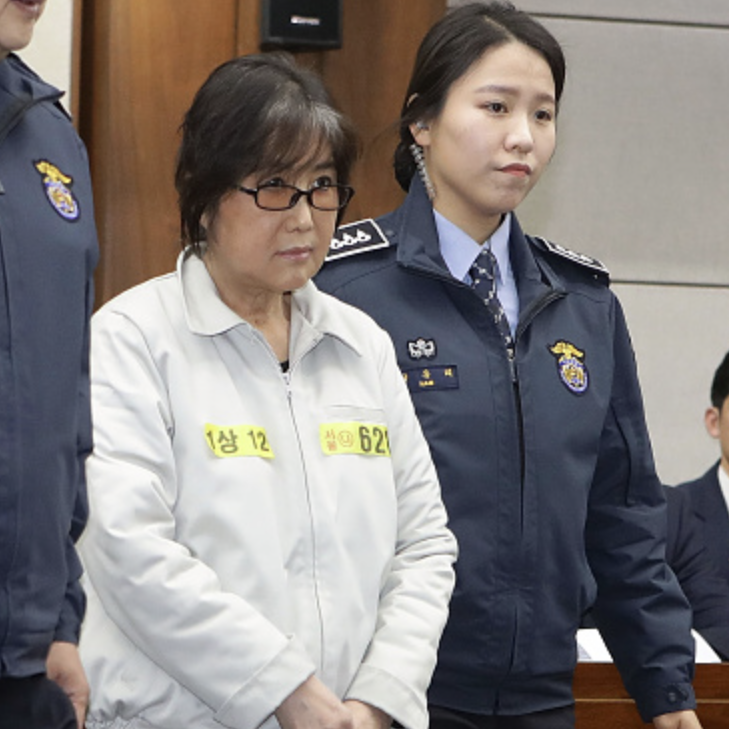South Korea’s election: the run-down
South Korean voters are heading to the polls today to vote for their new president. This is following a political scandal that has left their former leader charged with corruption. DARIA IMPIOMBATO reports.

http://gty.im/674371822
Presidential candidates for today's election.
By DARIA IMPIOMBATO
The South Korean elections are on today and it’s set to be one for the history books.
With growing nuclear threats from their estranged sister North Korea, and a political scandal that landed their last president, Park Geun-hye, in jail pending trial, South Korea is at a critical turning point in its history.
The race is between leftist Moon Jae-in of the Minjoo Party and centrist Ahn Cheol-soo of the People’s Party.
There is a lot to unpack in this election so here is a crash course filled with everything you need to know, to be in the know.
Why is the former president in jail?
In November last year, former South Korean president Park Geun-hye, who was also the country’s first female president, was impeached and charged with corruption.
She has been charged with bribery, extortion and abuse of power, allegedly accepting, or potentially coercing, bribes from Samsung and other large Korean multinationals.
Ms Park was arrested, together with friend of 40 years, Choi Soon-sil, and Samsung’s top executive Lee Jae-yong.
http://gty.im/630996540
Former South Korean president Park Geun-hye in court.
Samsung was accused of giving $3.1 million to one of Ms Choi’s companies in order to receive Ms Park's support in a merger between Samsung and Cheil Industries, an affiliate firm of the electronic giant.
This has landed Ms Park in prison pending trial, while also writing history as the first democratically elected South Korean president to be booted from office.
The country has since been in the hands of acting President and Prime Minister
The newly elected leader will by no means have an easy task, with the country surrounded by increasing tension between North Korea, the US and China. So who might it be?
The frontrunner: Moon Jae-in
Moon Jae-in was runner up to Ms Park in the 2012 presidential election but this time is tipped to win, currently polling at around 40 per cent of the electorate.
Mr Moon’s campaign has a more moderate attitude than his predecessor’s, aiming to enhance engagement with North Korea and loosen the tension in the area through diplomatic action. This is more in accordance with China’s wishes than the United States’, who pursue a more hard-line response to North Korea.
A central pillar of Mr Moon’s campaign is the re-evaluation of the Terminal High Altitude Area Defence (THAAD), an anti-missile defence system deployed by the US government on South Korean territory and a key issue in the election.
http://gty.im/678366710
Election frontrunner Moon Jae-in.
The program, promoted by the US, aims to reinforce the South Korean defence system in case of an attack by North Korea, providing the country the ability to essentially shoot down nuclear missiles launched by North Korea.
The dark horse: Ahn Cheol-soo
Software engineer turned politician Ahn Cheol-soo was, at best, a minor player in previous elections.
He is the leader of the People’s Party, which holds only 40 out of 300 parliamentary seats, and in March, was barely polling at 10 per cent.
But Mr Ahn is now the strongest opponent of Mr Moon. He offers an alternative for conservative voters, disenfranchised with the conservative party but unwilling to vote for a liberal candidate.
His hard-line position on North Korean war threats follows Ms Park, backing the US and political analysts have said the spread of fear for a potential attack by Kim Jong-un is helping Mr Ahn gain more supporters.
Why should we care about South Korea?
Beside the French election, this change in South Korea’s leadership may be one of the hottest electoral events of the year.
Whoever is elected faces a big question: how will they respond to North Korea? Will they follow the US in an aggressive approach, or, like China, respond more passively?
But South Korea isn’t the only state stuck between a rock and a hard place: Australia is in the same boat, and just like South Korea, we are desperate not to rock it.
Monash University international relations Professor Aleksandar Deejay said Australia needed to monitor our relationship with the US and China.
“As [US and Chinese] relations grow more tense around North Korea and the South China Sea, Australia will have to continually assess how it balances its relations between its biggest trade partner and its ideological and military ally.”
Mr Deejay also said that Australia, South Korea, and the international community would need to seriously assess how comfortable they were with a nuclear North Korea, and whether Kim Jong-un could be considered a rational actor.
So keep your ears pricked and your Google Alerts on, because this election and the upcoming political atmosphere in South Korea is going to make history.





